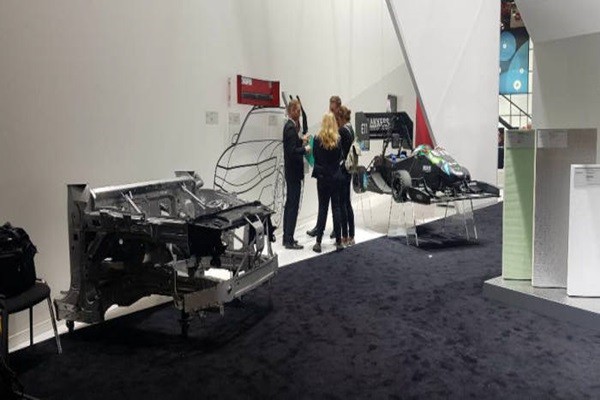Multinational German chemicals company called Lanxess is looking to target the South Korean market because it believes that South Korea is the leader in the mobility market as it is expanding its influence within the markets for electric car and hydrogen car.
Vice-Chairman Hubert Fink held a press conference during ‘K 2019’ that was held in Duesseldorf, Germany on the 16th and announced Lanxess’ plan to target the South Korean market.
“Chemical engineering field including automotive field are important industries for the future of Lanxess.” said Vice-Chairman Hubert. “South Korea has important mobility customers as well as excellent business opportunities for our company.”
Reason why Lanxess is focusing on the South Korean market is because it believes that South Korea is playing a huge role within electric and electronic fields and mobility field such as semiconductor, home appliance, electric car, and hydrogen car.
It makes most of its sales from flame retardants including engineering plastic from China followed by South Korea. Its flame-retardant plastics are used for key components of an electric vehicles such as battery module, charging module, inner cover, and other relevant components. It is currently working on a product that changes a hydrogen tank’s inner container, which is a key component of a hydrogen car, from metal to flame-retardant plastic material. South Korean automotive manufacturers as well as battery manufacturers are its major customers.
“Our Durethan and Pocan satisfy the high degree of electrical insulation, abrasion, and flame retardancy required by an electric vehicle’s powertrain where high voltage flows.” said Vice-Chairman Hubert. “Because they can be made in various bright colors such as white or orange, they are perfect for areas that need satisfy signs.”

Other multinational chemicals companies are also focusing on South Korea’s mobility market.
Actually, a global plastic exposition ‘K 2019’ that is held every three years actually seems like a motor show as multinational chemical materials companies display cars that are surrounded by different plastics. Besides Lanxess, other multinational chemicals companies such as BASF, Covestro, Castrol, NOVA Chemicals, Asahi Kasei, and LG Chem displayed electric vehicles and autonomous vehicles based on their concepts. Not only their cars are lighter as metal is replaced with plastic, but they can also be used as display materials.
Lanxess has been strengthening its engineering plastic department according to changes taking place within the automotive market. It acquired Bond-Laminates in 2012 and it extended its plastic compounding plant in Gastonia that had produced 20,000 tons of plastics annually so that it produces 40,000 tons of plastics annually.
Lanxess is also increasing its investment in plant and equipment in Germany and China. In 2017, it acquired an American chemicals company called Chemtura that was the leading company in the flame-retardant field. In 2018, it sold 50% of its shares of Arlanxeo, which is a synthetic-rubber maker that has consistently contributed to Lanxess’ overall sales, to Saudi Aramco. Its strategy was to secure markets that are stable and future-oriented.
Lanxess emphasized that South Korea’s importance is growing bigger day by day along with expansion of markets for future cars.
“We see that more flame-retardant plastic materials will be used for electric cars and hydrogen cars than gasoline-based cars.” said Vice-Chairman Hubert. “As paradigms change, South Korea will expand its base even more as it becomes even more important market.”
Staff Reporter Lee, Kyungmin | kmlee@etnews.com